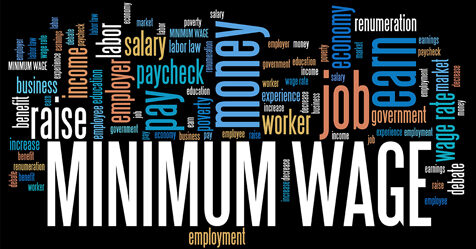2023 Survey Finds Americans Vastly Value Handwashing for Health
Despite being divided on ideologies, Americans largely agree on the importance of handwashing.
While it might be true that the United States is largely divided politically, a recent survey has found that the overwhelming majority do agree that handwashing is important.
According to the Healthy Handwashing Survey™ from Bradley Corp., a provider of commercial restroom and industrial safety solutions, 93% of 1,025 respondents said they believe handwashing is essential to maintaining their overall health. That sentiment was nearly universal—no matter the gender, age, or geography of the respondent.
The survey also found that Americans increase hand hygiene when traveling and for special occasions. During road trips, 75% of adults said they make a conscious effort to wash their hands wherever they stop along the way, and 69% reported being diligent on handwashing when at an airport. When a special occasion or the holidays approach, 63% said they remain similarly mindful of their hand hygiene.
“Handwashing, using soap and warm water, is an easy and effective way to reduce the spread of disease-causing organisms,” said medical microbiologist Michael P. McCann, Ph.D., professor and chair of biology at Saint Joseph’s University. “Given the ease with which some of these organisms can be spread on solid surfaces, in food, and by other means, handwashing is something that everyone should do after activities like using the restroom.”
Typical American Hand Hygiene Behavior
As for typical hand hygiene behaviors, the Americans surveyed fell into the following categories presented by the survey:
- “Rule followers”—those that apply soap, lather it up, scrub completely, rinse, and then dry: 51%
- “Lather and linger”—those that do a thorough job of lathering and washing: 35%
- “Twice as good”—those that always use two pumps of soap: 33%
- “Human dryer”—those who wipe off their wet hands using their clothing: 20%
- “Air it out”—those who rely on air drying their hands after washing: 17%
- “Rinse and run”—those who only use water and omit soap and drying: 14%
- “Skip it all”—those who never take the time to wash their hands: 3%.
Regarding those who opt out on hand hygiene, the survey found that most Americans (65%) negatively viewed such behavior, while another 40% saw the touching of one’s nose, mouth, or eyes as a turn off.
For business facilities, poor restroom maintenance not only presented as a bad image but also risked a reduction in sales, as 52% said that an unkempt restroom impacts whether or not they’ll return to the establishment.
On the other hand, nearly 60% said they were likely to spend more money at a business with clean, well-maintained restrooms. The same percent would make a point of going to a location that offers pleasant facilities.
Germ Avoidance Techniques
The survey reflected a keen awareness by Americans of germs and a willingness to avoid them. In fact, 82% of the adults surveyed said they value the importance of touchless fixtures in restrooms.
In an effort to avoid touching surfaces, 62% said they use a paper towel to avoid touching toilet flushers, faucets, and door handles; 43%, especially women, operate the flusher with their foot; 31% hover over the toilet seat; and 27% use their behind to open and close doors.

